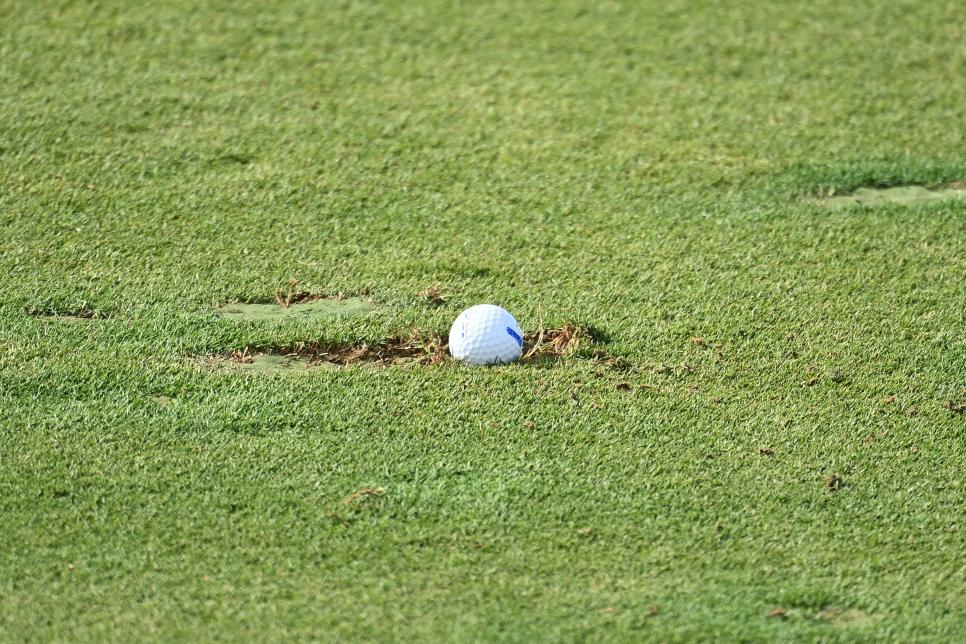Why pros use this five-word phrase to play better golf—even on the bad days – Australian Golf Digest

- by Admin
- September 4, 2024

My club championship was last weekend, and I did not have my best stuff. It was pretty disappointing—I knew going in I wasn’t playing my best golf, but I couldn’t help hoping something would change. But it didn’t. I stumbled into the match play, found a small semblance of good golf, but lost a hard-fought match in the first round. At least the golfer who beat me ended up winning, so there’s some pride in that.
Either way, it was this five-word phrase that helped get me through that grind of a round. That phrase was simple:
“Go with what you have.”
It’s a phrase top sports psychologist Brett McCabe uses with his numerous tour players, and one that Golf Digest editor Sam Weinman helps explain in the most recent Golf IQ podcast, which you can listen to below.
So, what does it mean? And how can golfers apply it?
How to ‘go with what you have’, in 5 steps 1. Pay attention to the ball
I don’t know about you, but I’m not very good with details. But this is the essential first step towards learning to go with what you have. Where is the ball starting? How is it curving? Where is it ending? Is it going short or longer than usual? It may be that you’re hitting good shots but aiming wrong—or maybe the opposite. It’s only by paying close attention to the details that you can diagnose what’s happening, and learn to play it.
2. Problem solve
Going with what you have, by definition, means playing the hand you’re dealt. You may not be able to swap out better cards, but by quickly getting an understanding of what you do have that day, you can start to problem-solve your way to playing it. Thinning chips around the greens? Try putting instead. Hitting slices? Aim left and try hitting a hook. Playing poorly doesn’t mean banging your head against the wall.
Ross Kinnaird
3. Stop mourning what you don’t have
Those days when your golf swing feels great and the shots fly straight are wonderful. Enjoy them when they come, but don’t mourn them when they don’t. The nature of golf means there’ll be days when your C-game is all you have. The more time you spend mourning what you don’t have, the less time you’ll be able to spend problem-solving your way to playing good golf with what you do have that day.
4. Remember some emergency strategies
Bandaids are important for the bad days. Here are a few to remember:
- Teeing the ball down a little lower can help keep your driver in play
- Aiming into the rough off the tee is just fine.
- Golf swings tend to get shorter on the course—so turn extra big!
- Most misses with your irons end up short. Take an extra club.
- Putting from off the green is usually a better option.
- When in doubt, hit putts high and soft.
5. Take pride in the wins you can have
Some days you just don’t have it. It’s part of golf. Accepting that is key. Learn to appreciate the wins where you can find them, and take pride in making the most of your bad days.
Once again, you can listen to the full podcast below (and subscribe right here!)
This article was originally published on golfdigest.com
The Latest News
-
January 4, 2025Horse Racing News: Holymanz strikes again at Geelong races
-
January 4, 2025Australia coach calls out ‘intimidating’ India celebrations, reveals Konstas chat
-
January 4, 2025Wife’s brutal reaction as Steve Smith savaged over ‘selfish’ act against teammate
-
January 4, 2025Bumrah under cloud as India reveal back spasm | cricket.com.au
-
January 4, 2025Biggest curveball of summer that could decide series; Beau ‘earns his stripes’ in coming of age: Talking Pts




